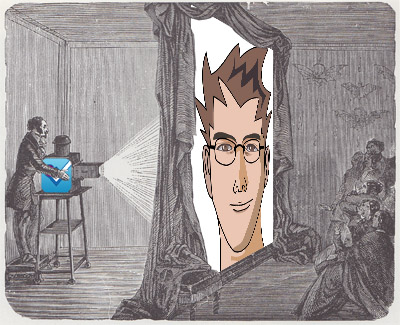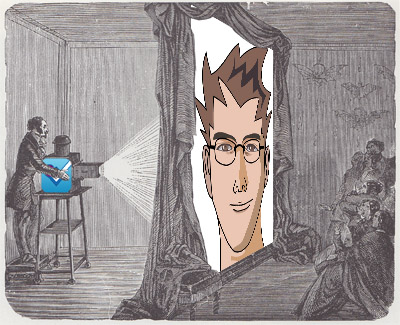Foursquare gamification: Exposing my mundane and meaningful life
It is usually the player who determines whether a game is boring. After five months of playing, I find it is Foursquare that makes such a judgement on the player’s life. I have also discovered how meaningless that judgement really is.

Rules of gamification
Foursquare launched in March 2009 and now reports over 500,000 businesses and over 10 million users globally. I felt like a laggard when I joined the purported masses with my first check in on 6 May 2011. However, my digital insecurities are kept at bay knowing there were only around 150,000 Foursquare check-ins in Australia in 2010.
Foursquare is part of what is described in some circles as “gamification”. In simple terms, gamification involves taking an everyday activity and applying game-like aspects such as challenges, levels, rewards and competition. I will admit to not having much fun with the word.
As a student of the social sciences, I take offence at popular terms that take decades of goal setting and motivation research, add a dash of usability, layer over repurposed technology, and package it up using new language. Like social media and dotcom before, I am confident that the reality of commercial outcomes will burn away the noise to get us back to basics of manipulating human behaviour. German PhD student Sebastian Deterding’s Google presentation gives a healthy perspective on the topic.
Sebastian identifies and expands upon three requirements to make a successful game. First, The game must have meaning, some alignment to the user’s values. Second, the game needs to result in a feeling of mastery, with appropriate challenges and rewards. Third, the user needs to have some degree of autonomy in their playing of the game. Without the appropriate application of the three components, your game will fail. Such has been the outcome of my Foursquare experience.
Bored mayors with privacy concerns
I jumped into the Foursquare game with both feet. Within a few weeks, I had a few mayorships under my belt and a collection of badges to my name. Each engagement with the platform seemed to hold surprise points for actions such as checking in with a friend, checking in three times in a week, or being the first of my friends to check in to a place.
These rewards soon became not enough. Foursquare offers businesses the chance to offer discounts for people checking into their establishments, but few around me offered anything of relevance. Without discounts to feed my face, the points alone were insufficient to adequately sustain my ego.
My check-ins also exposed privacy issues. Sites like Please Rob Me highlight the fact that when you check into one place in a location-based service, you are obviously not in another place such as, oh, say… your home. I know someone who picked up a violent stalker who made threats relating to the person’s home address, clearly visible through Foursquare home check-ins. From a corporate sense, I have another friend in business who picked up an account when he saw a competitor checking into a target client and knew exactly how to counter their value proposition.
The validity of the data is also in question. One client mentioned having to erase inappropriate and publically visible check-ins at their facility from maturity-challenged users. My own inner 12-year old was tempted to create a location in my neighbour’s bathroom just to produce a screen shot of a 2:00am post that stated “Chad checked into Jason’s bathroom”. My inner 39-year old decided it was kind of creepy and not worth the effort.
Finally, the game can be gamed. Clever developers tell me there are ways to check in anyone to anywhere through some programming hackery. Code-foolery aside, even regular people can game the system by checking into places they wander by, becoming mayor of the local pizza shop by checking in at the stop lights on the way home.
Exposing my boring life
These issues alone are enough to dissuade the average punter here and here. Yes, the game of Foursquare lost meaning for me as I swapped mayorships at my local petrol station. I am persistent, however, and have played many games less engaging. Privacy is a concern on both a corporate and personal level, but there is protection available.
I also can’t really complain about people gaming the system, as I found there were not enough people using Foursquare to have a real competition. I did nearly succumb to cheating in order to get the badge for holding 10 mayorships at the same time. In the end, it was not worth the risk of permanent scars to my integrity.
No, the main reason why Foursquare is losing appeal is because it highlights just how uneventful my life really is. Within a few weeks, I was the mayor of my starting and stopping train stations, two local petrol stations, my bank branch, and a fast food joint. Foursquare encourages you to explore your area, but being the first of my friends to check into my lawnmower repair shop didn’t have the appeal I thought it would.
While I pride myself on consistency, my achievements seemed to pale in comparison to my Foursquare friends who regularly checked into wine tasting exhibitions, far away bridges, and clever little cafes. Foursquare exposed my mundane routine of long work hours and weekends spent studying. My Foursquare iPhone application quickly turned into a mocking reminder of everything I was not doing.
Measuring meaning
I have come to realise Foursquare is a game that does not measure what matters to me. I do not need an app to check-in drinking my first tea with my wife in the post-flood house she built. There is no badge for an afternoon watching 90’s cartoons with my kid. Being mayor of my work is irrelevant to the real heroes in my studio that each deserve more than some virtual badge.
For my holiday starting next week, I am embracing my routine and letting my Foursquare accomplishments slip. I might draw, watch a few movies, read, have coffee with friends, and dream about the future. For something different, I may even see my family during daylight hours.
I respect that Foursquare would deem these things unworthy of reward. As I check out of Foursquare, I am looking forward to checking in with those things that have real meaning.


You describe: “Foursquare exposed my mundane routine of long work hours and weekends spent studying” as “uneventful”, but both of these activities are focussed on building your desired future.
Perhaps it isn’t Foursquare passing judgement. Perhaps it is through the lens of Foursquare that you are able to articulate the judgement you had already reached…?
You have exciting things in your near future. I wonder if, by using Foursquare as part of the process of documenting that experience, you might find Foursquare to be meaningfully affirming? It would record the minutiae of a process which has an important overarching meaning. In so doing, it would reveal meaning in the minutiae.